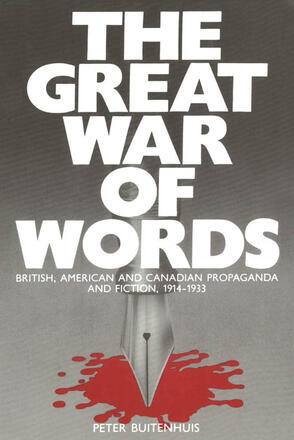
The Great War of Words
British, American and Canadian Propaganda and Fiction, 1914-1933
Description
In September 1914, twenty-five of Britain’s most distinguished authors met with the war propaganda bureau to discuss how they could defend civilization against the savagery of the invading “Huns”. In The Great War of Words Peter Buitenhuis tells the hitherto unknown story of the secret collaboration between the government and leading writers of the time, including H.G. Wells, John Buchan and John Galsworthy. The book also chronicles their disillusionment with the Allied propaganda machine after the war – and how this changed the course of literary history in the 20th century.
Reviews
Buitenhuis’s book shows us how even writers can deceive themselves not only into celebrating but also into advertising and even lying about war.
- John Ferns
A useful overview of an important, and strangely neglected, chapter in the history of modern literature.
- The Journal of Modern Literature
The Great War of Words is a fascinating account of how a war is fought as much in the mind as on the battlefield, and by fiction writers as much as by generals and soldiers…the book serves as a useful reminder of the power of words, and dangers in a democracy of those words being used to serve an end other than the truth.
- Douglas Francis